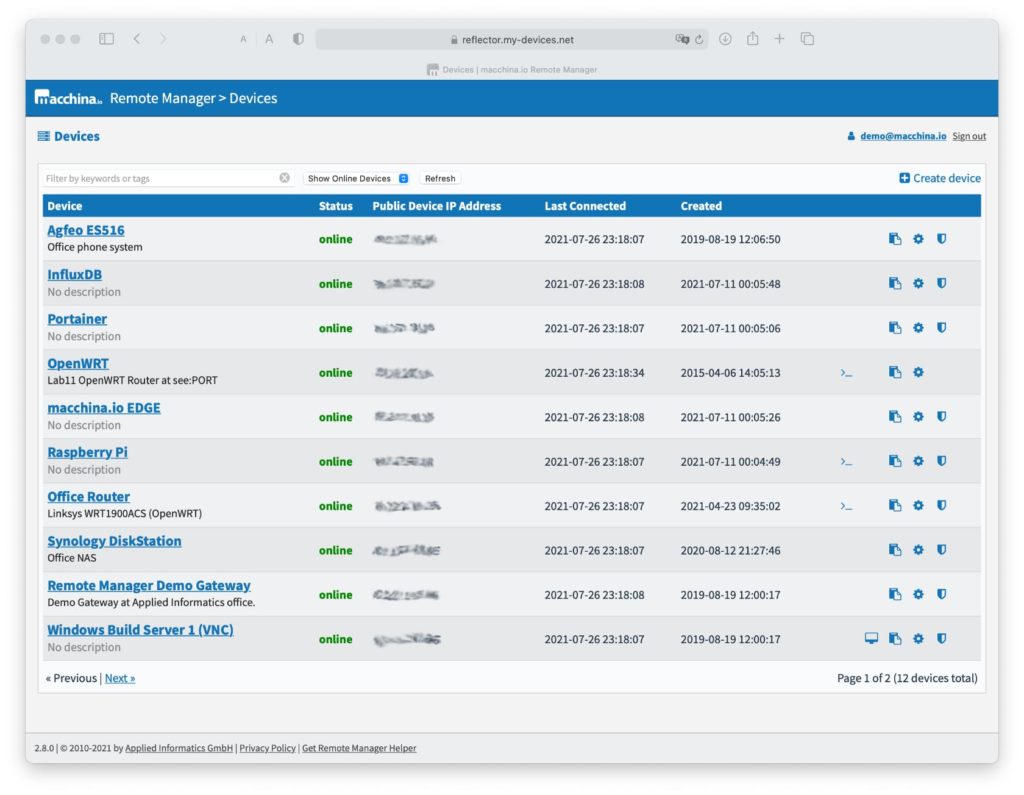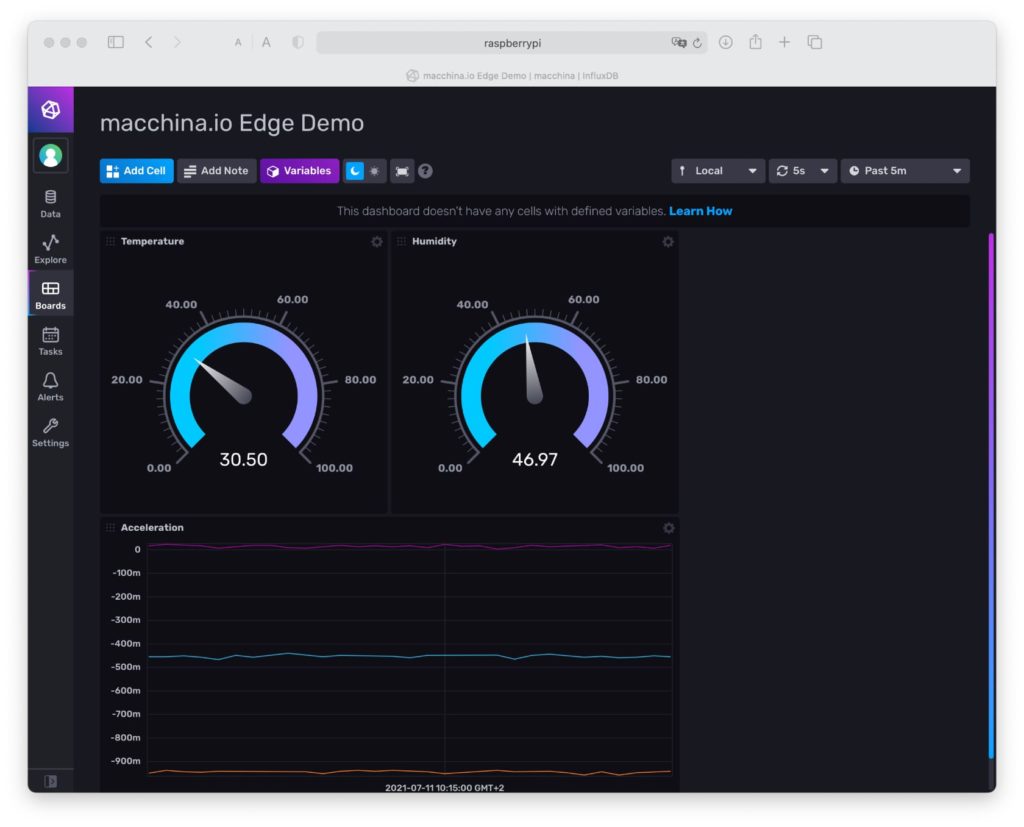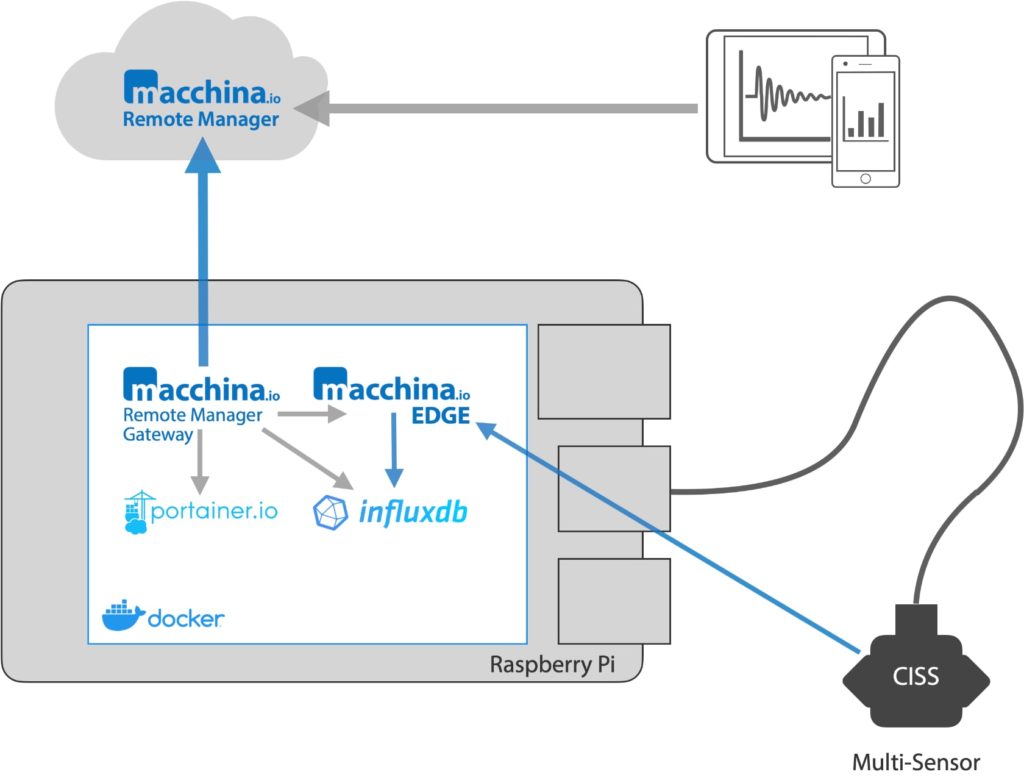macchina.io Remote Manager delivers secure IoT edge device remote access and management via web, apps, shell (SSH) and remote desktop (VNC, RDP). No worries about insecure port forwarding, scarce public IPv4 addresses, or complex and inflexible VPNs. We are happy to announce the latest release of macchina.io Remote Manager, release 2.8.0. This release brings a […]
Welcome back to the second and final part of my article where I describe how I’ve built a simple edge computing application by combining macchina.io EDGE and macchina.io Remote Manager with InfluxDB, a widely used time-series database, with everything running in Docker containers that can be managed via Portainer. In the first part, I described how I’ve […]
Following up my previous blog post about edge computing, in this blog post I will show how to build an edge computing application by combining macchina.io EDGE and macchina.io Remote Manager with a number of other applications. These are Docker, as everything will be deployed in containers, Portainer, for providing a nice remotely-accessible web interface for managing […]
It’s hard to believe, but this year macchina.io Remote Manager already turns 10 years old. Of course, the current version of Remote Manager has not much in common with its early humble beginnings (back then called my-devices.net), except for the basic product idea: providing secure, hassle-free remote access to IoT devices via web and other […]
Das Internet der Dinge (englisch: Internet of Things, kurz IoT) und die damit verbundenen Begriffe Cyber-Physical Systems, Industrie 4.0 und Industrial Internet sind derzeit in aller Munde. Doch was steckt dahinter? Und vor allem stellt sich die Frage: Handelt es sich nur um neue Technologien oder vielmehr um ein Umdenken auf Geschäftsprozessebene? Antworten dazu gibt […]
Linux-based single-board computers like the Raspberry Pi, BeagleBone, RED Brick, UDOO, Galileo or Cubieboard are very popular choices in the Maker scene for building all kinds of devices needing plenty of computing power and internet connectivity – the Things in the so-called Internet of Things. And not just in the Maker scene – these low-cost, […]
Meet Günter Obiltschnig at the Sierra Wireless Innovation Summit, a full-day IoT Innovation conference in Paris on June 17. Günter will demo macchina.io, the new super-awesome POCO-based platform for building IoT gateways and devices. The event features technical and business tracks, plenty of real-life use cases, an exciting showroom with 15+ live IoT demos, and […]
Secure remote access to the built-in web server of a device is one of the fundamental building blocks for the Internet of Things. my-devices.net enables easy and secure remote access, even if the device is located behind a NAT router or a firewall and does not have a public IP address. Read our new white […]
On April 7, a team of security researchers found a critical bug in some versions of OpenSSL that allow an attacker to read random memory regions of affected server processes. This issue is widely known as Heartbleed, and more formally as CVE-2014-0160. Immediately after becoming aware of the issue, we have checked the server hosting […]
Over the past few months we have been quite busy working on our newest product which we call the “IoT Framework”. In a nutshell, the IoT Framework contains everything needed for building software for Internet of Things-enabled devices. Of course the framework is based on our existing C++ toolkits, most notably the POCO C++ Libraries. […]



